What a fantastic fourth week it’s been for our November to Remember series of guest lectures series.
After the previous 3 amazing weeks, the 4th week bought two more great guest lecturers, enjoy them here if you missed them at the time…
Deep thoughts from the Centre for Applied Computer Science @ The University of Bolton
What a fantastic fourth week it’s been for our November to Remember series of guest lectures series.
After the previous 3 amazing weeks, the 4th week bought two more great guest lecturers, enjoy them here if you missed them at the time…
The venerable BBC micro celebrates its 40th anniversary this year.
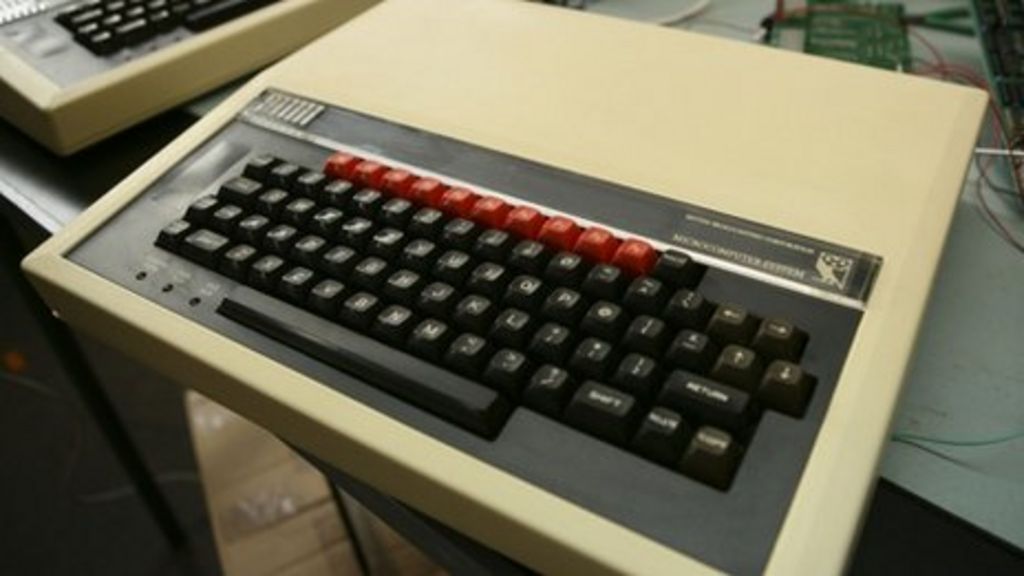
We have one in working condition in the Centre for Applied Computer Science. The University’s Head of Networks stuck his head around our office door and casually mentioned they had found a BBC Micro in a store cupboard and asked whether we wanted it. My inner teenager who had wanted a BBC since 1981 immediately said “yes please”. A few power supply capacitors needed changing and a TV with analogue input was found. The beeb made a happy chime and we were ready to go. Now what?
For those of you too young to remember the 8-bit home computer revolution in the 1980s, the BBC Micro was an important computer for home users. Most of us could not afford one, they cost almost £400 in 1981; adjusted for inflation that is a shade under £1600 today. That’s Apple money! The contemporary ZX Spectrum was a quarter of the price so most of us had those instead. It is difficult to explain just how limited the early 8-bit home computers were in modern terms.
The BBC Micro was a beast for its time. It had a full keyboard, plenty of expansion interfaces and was built without the cost saving compromises of the Spectrum. We have to remember that as an 8-bit system it was very limited. Even with 16 bits for addressing that only gives you an address space of only 64Kb. That’s right, kilobytes – not gigabytes or megabytes: 65536 memory locations. Actually it is worse than that, only half that space was available to programmers. The other 32Kb was used by the system. The 1980s gave us a special breed of programmer trying to wring every last shred of performance from these relatively limited computers.
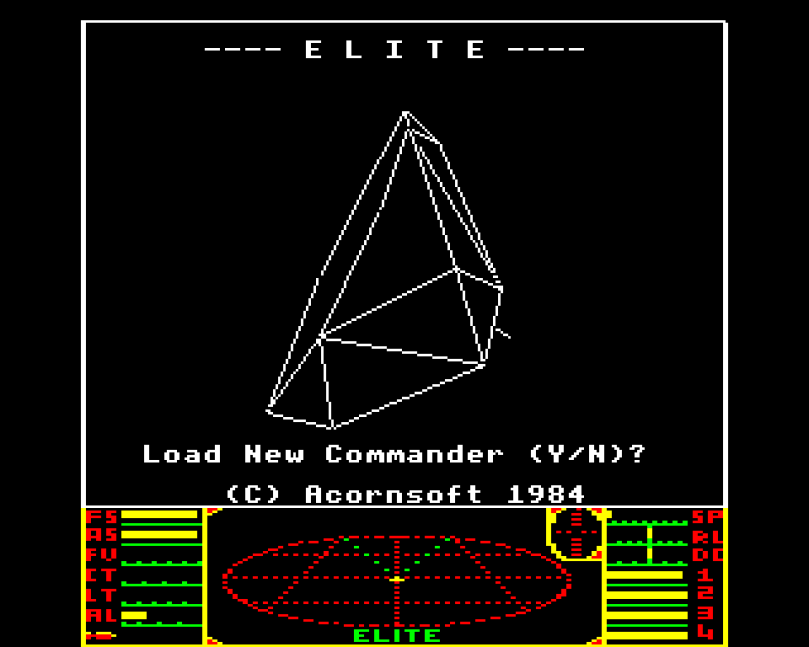
A great example of creative programming is the renowned Elite space trading (and shooting) game. Legend has it that the game used every single byte of available memory. The legend isn’t quite true, according to the dedicated BBC Elite Wiki there were actually 66 bytes of unused memory! There is a famous hack used in this game which is very impressive. The BBC micro had a number of graphics modes with different capabilities. One mode allows (relatively) high resolution graphics with a limited number of colours. Another offers more colours at much lower resolution. Elite wanted both! The above picture shows a high res, low colour spaceship in wireframe view in the top part of the screen and a low res full colour console at the bottom.
As detailed in the Elite Wiki the programmers exploited the way screens refresh faster than our eyes can follow. On a UK screen running at 50Hz the image is drawn from top to bottom. The programmers calculated how many clock ticks it would take to get 3/4 of the way down the screen. They set a timer running at the start of each screen load and put the graphics into the high res low colour mode. When the timer expired 3/4 of the way through drawing the screen it generated an interrupt and the graphics mode was switched to the high colour mode for the rest of the screen before switching back and resetting the clock for the next frame.
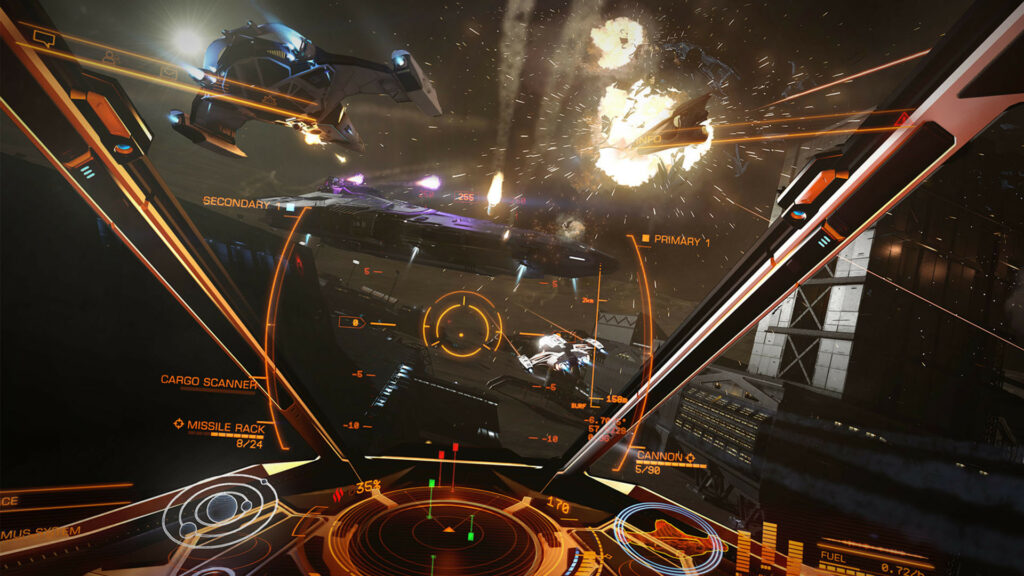
Andrew Holland who regularly writes here is a big fan of the current Elite Dangerous game (available on Steam if you are interested). It has all the high end graphics and performance that the original lacked. In every way it is a better game. You could not squeeze it in to 32k of memory though.
What a fantastic week it’s been for our Our November to Remember series of guest lectures series.
This week has seen two more great speakers, you can watch them below and catch up with all of them from our official YouTube channel:
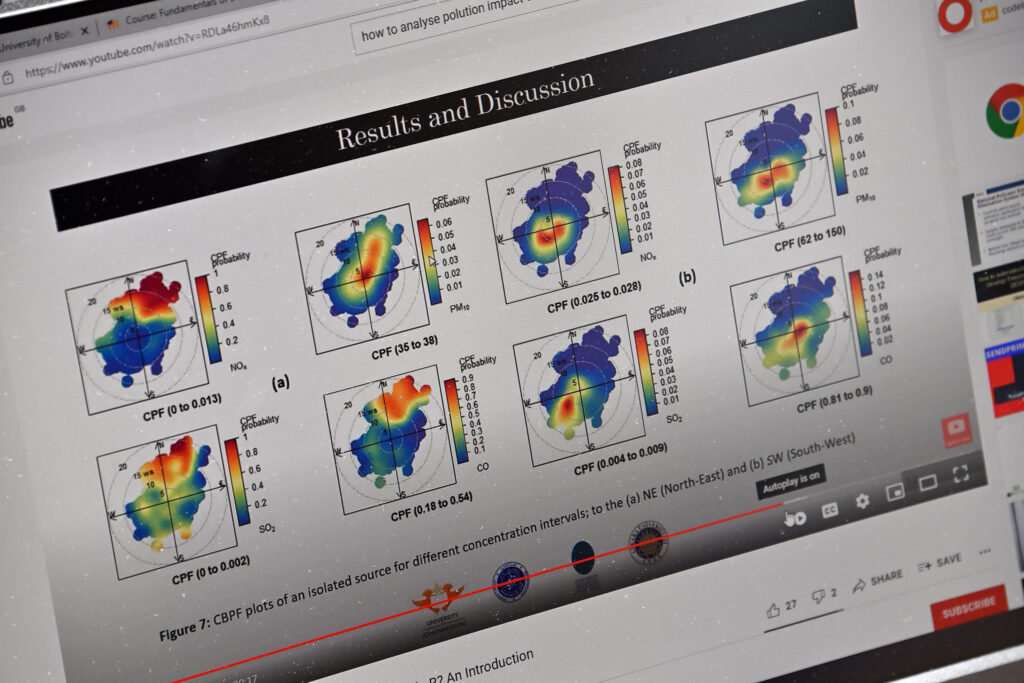
What a busy and exciting week it’s been!
This week saw our inaugural annual Bolton data hackathon as students from our computing degrees organised themselves into teams to rise to the challenge thrown down to them by our friends at Bolton Council: discover something new relating to the local environment by “digging deep” into complex open data sets to truly turn data into meaningful and insightful information.

Students at all levels, from first-year undergraduates to postgraduates, set to work over the two-day event to sift, sort, shape, examine and explore a variety of complex datasets during what proved to be an enlightening, challenging and entertaining event for everyone.
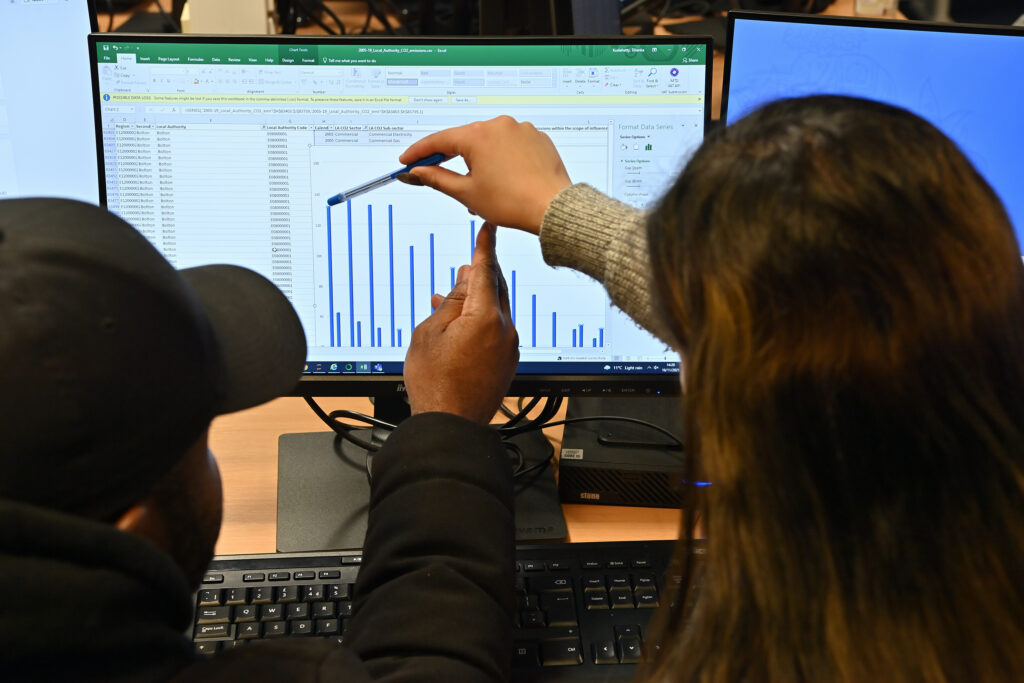
7 teams presented their conclusions and the members of the top 3 teams who were judged as having produced the best outcomes, were awarded £50 Amazon gift vouchers each.
But not only were cash prizes up for grabs, the top-scoring team’s lucky members also get the opportunity of several work experience days at Bolton Council to learn more about how computing shapes and supports what the council does in many different ways.
The winning teams were:
1st Place – Team Mountain (Nathan Barron, Ike Igweze, Umara Akhtar, Ash-Lee Ashton, Nitesh Pandit)
2nd Place – Team Ctrl Alt Delete ( Josh Price, Alison McCaughtrie)
3rd Place – Team Data Miners (Isa Hussain, Faizaan Mohmed, Subodh Shah, Anis Patel, Abimbola Abatan-Balagun)
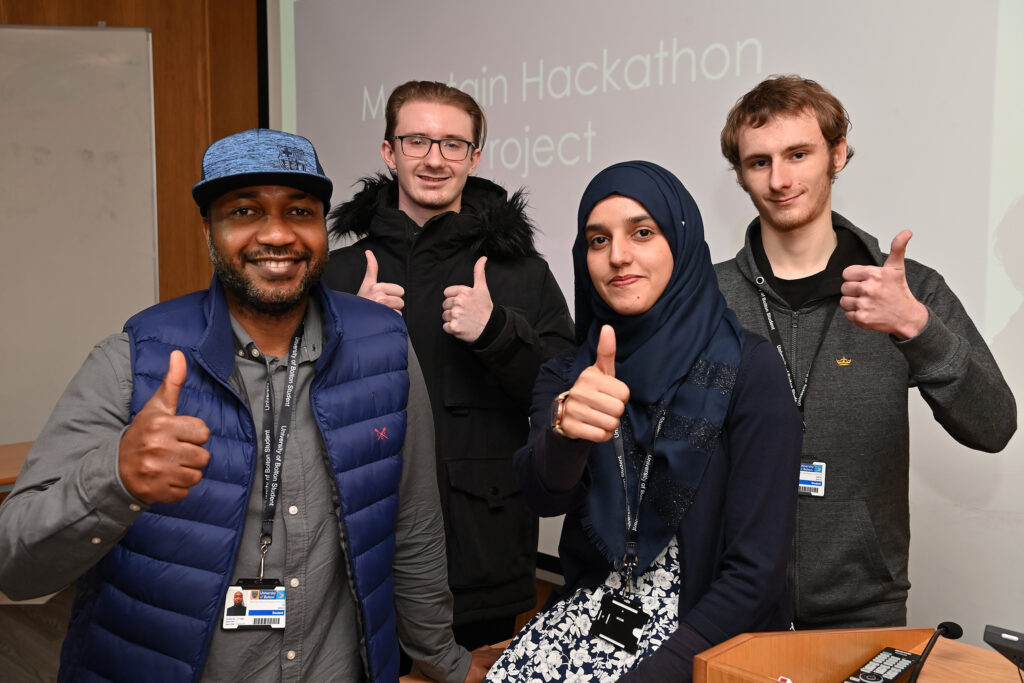
Well done to them and to everyone who took part!
This is a great outcome and shows once again that The University of Bolton truly has a focus on graduate employability as those experience days will greatly add to their CVs and give them valuable insight into the working world and the work of local councils.
Thanks again to the amazing people at Bolton Council and Data Mill North who helped us to make this possible, we look forward to seeing you again in 2022!
Who knows what the theme will be next year, but one thing’s for certain: our students will love taking part!
Can they dig it? Yes, they can! 😉
What a fantastic week it’s been for our Our November to Remember series of guest lectures series.
This week has seen two more great speakers, you can watch them below and catch up with all of them from our official YouTube channel:
Welcome dear reader.
As the darker, longer nights draw in, are you in need of something different to grab your interest and keep you engaged this November?
Quite possibly yes I’d have thought!
Well then, look no further! Our November to Remember series of guest lectures has gotten off to a flying start last week!
If you weren’t able to catch them live, fear not, you can catch up via our official YouTube channel, onto which we’ve just uploaded the first two lecture recordings from last week:
Prepare to be inspired and enthralled this November with our “November to Remember” series of guest lectures!
We have an exciting line-up of guest speakers to bring you engaging and thought-provoking lectures that bring business literacy, employability skills and research methods to life in the context of Computing:
All lectures are delivered online, with recordings available soon after on our official YouTube channel.
Lecture Schedule:
| Date In November | Speaker | Topic | ||
| 1st | Jane Egerton-Idehen, Facebook’s Head Of Sales, Middle East & Africa | Career Nuggets-Employability | ||
| 2nd | Paul Hollins, PhD MSC MBA FCybS Cultural Research Development Arts & Management University Bolton | Viable Systems Model: Cybernetics Research | ||
| 8th | Christopher Agbamuche, Vice President bank of America. USA | Business creativity and Innovation | ||
| 9th | Thippa Reddy Gadekallu, Associate Professor Grade 1 Department of Information Technology. Senior Member, IEEE Vellore Institute of Technology, Indian | Research and Publication Experiences | ||
| 15th | Chidinma Maduka Talent Management Leader | Global Competency Development and Career Management Expert | Driving HR Tech Change Projects, that Deliver Succession Plans and Ensure Sustainable Business Operations | Winning CV and Business Growth | ||
| 16th | Dr. Eng. Christos P. Antonopoulos, Assistant Professor University of Peloponnese Electrical & Computer Engineering Department, University of Peloponnese, Patra, Greece | Internet of Things: End-to-End Research Overview. The Ambient Assisted Living Environment | ||
| 22nd | Mohammed M. Alani Professor of Cybersecurity, School of Information Technology Administration and Security, Seneca College of Applied Arts and Technology, Toronto, Canada. | Forensic Analysis and Preventing Cyberattacks in Organisation | ||
| 23rd | Prof.(Dr.) Sandeep Kautish, Dean-Academics LBEF Campus, Kathmandu (Nepal) | Research Collaborations | ||
| 30th | Dr Celestine Iwendi, Senior Lecturer, Centre for Applied Computer Science, The University of Bolton | The Secret To Academic Research Excellence |
All lectures start at 6pm and are free to join with the Zoom details given below:
Zoom URL: https://bolton.zoom.us/j/3559164017?pwd=SzRoMDFPNUllNHUrbzNxMGgy
Password: UEU3UT09
We hope to see you there!
© 2024 UoB Computing
Theme by Anders Norén — Up ↑